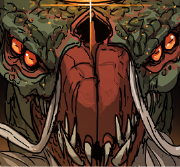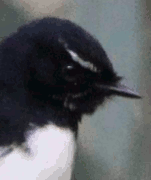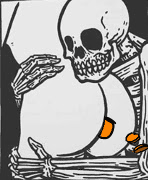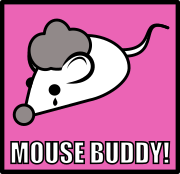|
I have no idea what anyone do you are talking about. The entirety of the LOTR is a masterpiece and a quick read
|
|
|
|

|
| # ? May 9, 2024 08:50 |
|
I'm always a bit perplexed by the idea that The Lord of the Rings in particular is some sort of endless slug where the narration mentions the story behind every blade of grass, it feels positively breezy compared to the behemoths subsequent fantasy authors wrote.
|
|
|
|
Mahoning posted:I think the first half of Fellowship of the Ring is the only REALLY hard bit to get through. I wouldn’t say the rest of the book is that tough beyond that. The first half of fellowship is just The Hobbit part 2, electric booglaoo
|
|
|
YaketySass posted:I'm always a bit perplexed by the idea that The Lord of the Rings in particular is some sort of endless slug where the narration mentions the story behind every blade of grass, it feels positively breezy compared to the behemoths subsequent fantasy authors wrote. It's because people read the Prologue and are all like "wtf is this poo poo"
|
|
|
|
|
Safety Biscuits posted:Here's a long, interesting, sympathetic, and finally negative LRB article about Tolkien, free thanks to the pandemic: https://www.lrb.co.uk/the-paper/v23/n22/jenny-turner/reasons-for-liking-tolkien - it does take its time stating the obvious, though. that article said posted:Here is a list of some of the things you learn about when you read Pynchon’s The Crying of Lot 49: LA punk, Jacobean revenge tragedy, early computers, radical politics of the 1960s, the Pony Express. Out your mind darts, searching the world for information. In it comes again, digging back with its goodies into the text. Here are some of the things you learn about while reading The Lord of the Rings: hobbit-lore, the two branches of Elvish, the annals of the Númenórean kings. Spot the difference? That’s right: the second lot is entirely fictional, and doesn’t involve even the shortest trip from your chair. The lore is self-referential, centripetal, an occult system. As astrology is to physics or conspiracy theory to history, so Middle Earth is to literature and learning. It’s a closed space, finite and self-supporting, fixated on its own nostalgia, quietly running down.
|
|
|
|
Yeah honestly she basically said I'm depressed. Reading LOTR and getting totally sucked into it is sort of like playing certain video games where you just sort of get totally absorbed into the rhythmic behavior of the game. I liked the ending where she pointed out the parallels between tolkien and gollum, though thinking about it, it feels pretty obvious right? Because Tolkien:Frodo is obvious, and Frodo:Gollum is obvious.
|
|
|
|
euphronius posted:I have no idea what anyone do you are talking about. The entirety of the LOTR is a masterpiece and a quick read I've met enough people who've bounced off the book, despite me gushing about it to realize it's not for everyone. Mahoning posted:I think the first half of Fellowship of the Ring is the only REALLY hard bit to get through. I wouldn’t say the rest of the book is that tough beyond that. It's kind of a crucial bit. YaketySass posted:I'm always a bit perplexed by the idea that The Lord of the Rings in particular is some sort of endless slug where the narration mentions the story behind every blade of grass, it feels positively breezy compared to the behemoths subsequent fantasy authors wrote. Just because there are books that are far worse written and more impenetrable doesn't mean that LotR hasn't got barriers to it.
|
|
|
|
That seems like a meaningless or senseless observation to me.
|
|
|
|
By far the best way to experience LotR for the first time is having it read to you by a parent
|
|
|
|
Trin Tragula posted:By far the best way to experience LotR for the first time is having it read to you by Rob Inglis 
|
|
|
|
From personal experience I would say 'The Hobbit' is great to read to your kids. It's written in exactly the tone and style of someone reading a story to a child, with cute little asides. You can totally picture Peter Falk reading it to Fred Savage. The Lord of the Rings is a lot less fun to read out loud, in my experience, if for no other reason than it's so long that if you read it in bedtime-size chunks, they'll have forgotten the beginning by the time you get to the end.
Imagined fucked around with this message at 23:42 on Apr 24, 2020 |
|
|
|
I bought each of my nephews and my son the illustrated edition of the Hobbit and instructed their parents to read it to them when they’re old enough. It is the ultimate read aloud book.
|
|
|
SHISHKABOB posted:Yeah honestly she basically said I'm depressed.
|
|
|
|
|
The author apparently cares only for cold facts rather than the universal truths conveyed by myth. A pity, to have no understanding of faerie-stories. Like watching a rainbow and only seeing light being bent.
|
|
|
|
Hmm. That article makes a few good points and a few really awful ones. The general gist of it seems to be that Tolkien wrote this huge rambling universe to escape from the dreadfulness of adult life. And for sure, there is plenty of grief and loss woven all the way through LotR. But I feel that the author has missed two crucially important things. Firstly, the article (particularly the last bit) wants to paint Tolkien as an anxious, repressed, brooding loner. But Tolkien seems to have really enjoyed writing letters, forming literary clubs, going on family holidays, going to the pub with his friends. He seems to have been really sociable for a isolated sadbrain. The dude was a hobbit, after all. Secondly, I don't think the author understands creativity. Ask a musician or a painter or even a person who is busy modding their favorite game- they don't expend effort on what they are creating; they get energy from it. (Talk to a writer or game-maker about their creation, and you will get exactly the same kind of cheerfully over-the-top response as Tolkien gave to the lady with the two bulls.) Creativity is refreshing, and generally hugely enjoyable. The author seems upset that Tolkien wasn't writing about, I don't know, the real world and sexual politics or whatever; they are confused by the idea that Tolkien put a huge amount of work into something that wasn't proper literature... That's their loss, really. Mahoning posted:I bought each of my nephews and my son the illustrated edition of the Hobbit and instructed their parents to read it to them when they’re old enough. It is the ultimate read aloud book. That sounds great. What age would you recommend for this?
|
|
|
|
Tree Bucket posted:Hmm. That article makes a few good points and a few really awful ones. I had the Hobbit read to me in instalments at school when I was nine and it changed my drat life.
|
|
|
|
Tree Bucket posted:That sounds great. What age would you recommend for this? Between 6 and 11, depending on the child.
|
|
|
|
Every year, starting at birth and continuing as necessary.
|
|
|
|
Pham Nuwen posted:Every year, starting at birth and continuing as necessary. 
|
|
|
|
Tree Bucket posted:That sounds great. What age would you recommend for this? 6 or 7 at the earliest, but it really depends. Around that age two things start to happen: 1) the short attention spans of toddlers finally starts to give way to longer attention spans, and 2) natural curiosity starts to blossom. And given that a kid will need to be asking quite a lot of questions during the story, that’s a good thing.
|
|
|
|
quote:Apart from Faramir and Éowyn, these are the only characters in the epic to embark on adult romantic relationships. Though one always wonders about Merry and Pippin, and Legolas the wood-elf’s prejudice-busting closeness to Gimli the dwarf. Ah yes of course, the "all male friendships are secretly gay" theory. A truly original take. quote:‘Real contact’ between villain and hero is very seldom made. What gore there is is stylised and blurry: ‘A swift stroke she dealt, skilled and deadly. The outstretched neck she clove asunder, and the hewn head fell like a stone.’ And no battle lasts terribly long before giving way to deliverance and a hot bath. (‘Nearly all of human life has always taken place far from hot baths,’ Simone Weil said in her essay on the Iliad.) Unlike most writers of this sort of nonsense, Tolkien had experienced real fear, real chaos, the real squalor of trench warfare. And yet, in his battle scenes, he seems to use language to obscure the realities of combat. Plenty of people who experienced real combat wrote like this. Just look at the Iliad which she mentioned one sentence before: that was insanely popular with the military elite who were plenty familiar with real combat. Or the medieval poets who were all about this stuff. I guess if you restrict yourself to the anti-war intelligentsia of the 20th century then she's correct, but I don't know why anyone would imagine that they would be Tolkien's main influence. quote:The politics of The Lord of the Rings, in short, comprises a familiar mixture of infatuation with power with an awareness of one’s own helplessness beside it. One’s best hope, really, is to suck up to the big people, in the hope they will see you all right. It’s the perennial fantasy of the powerless. Things would indeed be hopeless were it not for your secret friend the Big Bad Elf-Queen, who will come along when you finally call for her and wreak revenge for you on all the nasty kids at school. That's the opposite of what happens in the book though. It's the powerless hobbits that rescue the big people and the hobbits scour the Shire without any help. quote:Here is a list of some of the things you learn about when you read Pynchon’s The Crying of Lot 49: LA punk, Jacobean revenge tragedy, early computers, radical politics of the 1960s, the Pony Express. Out your mind darts, searching the world for information. In it comes again, digging back with its goodies into the text. Here are some of the things you learn about while reading The Lord of the Rings: hobbit-lore, the two branches of Elvish, the annals of the Númenórean kings. Spot the difference? That’s right: the second lot is entirely fictional, and doesn’t involve even the shortest trip from your chair. The lore is self-referential, centripetal, an occult system. As astrology is to physics or conspiracy theory to history, so Middle Earth is to literature and learning. It’s a closed space, finite and self-supporting, fixated on its own nostalgia, quietly running down. I guess this makes an encyclopedia the highest form of literature then.
|
|
|
|
Trin Tragula posted:Between 6 and 11, depending on the child. Mahoning posted:6 or 7 at the earliest, but it really depends. Around that age two things start to happen: 1) the short attention spans of toddlers finally starts to give way to longer attention spans, and 2) natural curiosity starts to blossom. And given that a kid will need to be asking quite a lot of questions during the story, that’s a good thing. Cool, that encompasses my kids' age range nicely. OctaviusBeaver posted:I guess this makes an encyclopedia the highest form of literature then. Ugh, this article gets worse the more you think about it. "Sure, Tolkien may navigated an unbelievably traumatic childhood and single-handedly forged an entire genre fuelled only by the joy of creativity and an abiding love of the power of language, but he was also a big loser nerd who wrote about baby things like elves instead of cool grown up characters like (checks wikipedia) Mike Fallopian."
|
|
|
|
Imagined posted:From personal experience I would say 'The Hobbit' is great to read to your kids. It's written in exactly the tone and style of someone reading a story to a child, with cute little asides. You can totally picture Peter Falk reading it to Fred Savage. The Lord of the Rings is a lot less fun to read out loud, in my experience, if for no other reason than it's so long that if you read it in bedtime-size chunks, they'll have forgotten the beginning by the time you get to the end. Not if they’re little nerdlings just learning to read, they’ll sneak the book and read it themselves then yell at you when you pick up where you left off because they are ‘past that already’ and make you skip around and ruin the enjoyment for you but still insist on being read to, interrupting every other sentence to ask ‘what’s that word mean?’ Also god help you if you don’t know the melodies to ALL the songs. They will also find the extended cut of Misty Mountains Cold on YouTube and insist on falling asleep to it every night and learning how to play it on the piano. Also if they’ve seen any of the movies they will criticize your Gollum voice. Tree Bucket posted:Hmm. That article makes a few good points and a few really awful ones. Right around the time they’ve just learned to read. Bonus if they’ve become Harry Potter freaks that tended to be a gateway drug for me. I think we did it around K-1st grade (age 6-8). They can follow along with their eyes but still have you there to learn the bigger words and do funny voices. God forbid you don’t know the proper melodies for all the songs. Also if their parents are jerks you can find Tolkien himself doing a read of it on YouTube along with other plummy Brits who include sound effects and music. Ditto for at least part of LOTR
|
|
|
|
I think the surest sign that Tolkien will be appreciated for decades to come is the constant protest by joyless critics.
|
|
|
|
On the topic of warfare depictions one of my favourite comes from the journal of rifleman Harris that depicted his experiences as a soldier in the Napoleonic Wars. Major battles that historians pour over in every detail are described by Harris like "we went up the hill and the French were there, and we forced them off" and then he goes back to describe the daily ordeal of finding food and fighting off boredom. I like that Tolkien doesn't indulge in overly descriptive violence. It gets the point across without turning into gratuitous carnage.
|
|
|
|
How many times is poop mentioned in LOTR I think twice?
|
|
|
|
euphronius posted:How many times is poop mentioned in LOTR What’s the second? I can only think of the throwaway gag where Sam and Frodo blunder into an orc latrine in Ithilien
|
|
|
|
I may have originally found this blog from this thread so it could be a repost, but this military historian has some really good analyses of LOTR. https://acoup.blog/2019/05/10/collections-the-siege-of-gondor/
|
|
|
|
skasion posted:What’s the second? I can only think of the throwaway gag where Sam and Frodo blunder into an orc latrine in Ithilien Depends on what you think Tolkien meant by the word "filth" in several passages.
|
|
|
|
Tree Bucket posted:Hmm. That article makes a few good points and a few really awful ones. The idea that Tolkien's books were basically his coping mechanism and fairly secondarily things to be published has got something to it, hasn't it? The most successful art therapy ever. Turner doesn't have an issue with Tolkien's interests, or anything like that; but her point that his writing is basically all made-up stuff - not even allegory or satire, but "applicable" - rather than facing the real world is (I think) a good one. OctaviusBeaver posted:That's the opposite of what happens in the book though. It's the powerless hobbits that rescue the big people and the hobbits scour the Shire without any help. Maybe that's a problem with any non-Christian reading of The Lord of the Rings, though. The narrative of the powerless Christ triumphing over the Prince of the world is really difficult to get behind if you're an atheist; you're much more likely to think "eh, deus ex machina". I was incredibly disappointed with the only Charles Williams novel I've read, because the climax is basically "and then the hero does nothing"; I understand it now, but don't want to re-read it... Easy to describe the Scouring as a sop, besides the spectacle of the War of the Ring, too. Sarern posted:I think the surest sign that Tolkien will be appreciated for decades to come is the constant protest by joyless critics. This, though - well, it's all grist to the discussion mill, anyway.
|
|
|
|
OctaviusBeaver posted:Ah yes of course, the "all male friendships are secretly gay" theory. A truly original take. "Frodo and Sam are totally gay for each other" is so common and so... I guess disappointing? Saying Merry and Pippin instead of Frodo and Sam is a little more original but it's still the same--the idea that two men can't be close friends without wanting to screw, and here it is perpetuated by a woman who'd no doubt have some pretty strong words to say about Toxic Masculinity if asked. I also find it a bit rich for someone who has never experienced war to tell a veteran his portrayals of combat aren't good enough. Nessus posted:[depression] is a secondary (or primary) theme of most literary articles these days... perhaps it was always so too, and they just hid it better. Or we didn't see it as clearly. I don't know exactly what we'll think looking back on the current Extremely Online Nihilist phase, but I can't wait to be looking back on it.
|
|
|
|
Straight male friends also used to be a lot more physically affectionate with each other.
|
|
|
|
Pham Nuwen posted:I also find it a bit rich for someone who has never experienced war to tell a veteran his portrayals of combat aren't good enough. I will never get tired of pointing out that while he was an infantry officer, what almost everybody misses is that he was a signals officer. His (extremely important) job was to maintain and use the Morse radio set, the field-telephone systems, lamps, heliographs, semaphore flags, rockets, and carrier pigeons. When his battalion attacked, he was just behind them, trying (and mostly failing, in impossible conditions) to extend the communications network behind the fighting. He never participated directly in combat, never had to fire his weapon in anger, and never saw a German soldier who wasn't a prisoner. In that light, everything about the way he writes combat and battles makes total sense. He has a keen sense for operations and logistics and tactics and exactly how epic the scale of a battle can be before it becomes silly, and he has great descriptions of how it feels to be exhausted and bombarded and keeping one's head down and moving quietly, or being under siege from an enemy you can't directly fight back against, or to anticipate going into great danger; but when it actually comes time to close with the enemy and kill him, it's all done at a slightly sanitary remove, because that's the thing he never did.
|
|
|
|
Safety Biscuits posted:The idea that Tolkien's books were basically his coping mechanism and fairly secondarily things to be published has got something to it, hasn't it? The most successful art therapy ever. Oh, for sure! I would certainly agree that "coping mechanism" takes precedence over "thing to be published." However the article seems to be ignoring the motive of "writing is actually really enjoyable and fulfilling." Which is a very strange omission. Safety Biscuits posted:but her point that his writing is basically all made-up stuff - not even allegory or satire, but "applicable" - rather than facing the real world is (I think) a good one. I'm not sure what you mean by this. Tolkien's stuff absolutely did face the real world- or at least, the real world of an Oxford don born in the late 1800s! The first bit of Tolkien's career was spent scurrying around sorting out military communication lines, and the second part, translating/teaching/researching ancient languages. And so LotR is an odd blend of linguistics and logistics. Trin Tragula posted:In that light, everything about the way he writes combat and battles makes total sense. He has a keen sense for operations and logistics and tactics and exactly how epic the scale of a battle can be before it becomes silly, and he has great descriptions of how it feels to be exhausted and bombarded and keeping one's head down and moving quietly, or being under siege from an enemy you can't directly fight back against, or to anticipate going into great danger; but when it actually comes time to close with the enemy and kill him, it's all done at a slightly sanitary remove, because that's the thing he never did. That's a really illuminating paragraph! I have a pet theory about how Gondor's soldiers go "nerveless" or bolt when they hear Nazgul scream out of the sky. To me this resembles the effects of shellshock from an artillery bombardment. Does that make sense, from what you've read, or is it a bit too neat? Pham Nuwen posted:"Frodo and Sam are totally gay for each other" is so common and so... I guess disappointing? Saying Merry and Pippin instead of Frodo and Sam is a little more original but it's still the same--the idea that two men can't be close friends without wanting to screw, and here it is perpetuated by a woman who'd no doubt have some pretty strong words to say about Toxic Masculinity if asked. What's that CS Lewis quote again? Something like, anyone who can confuse romance for friendship has clearly never experienced either.
|
|
|
|
Tree Bucket posted:What's that CS Lewis quote again? Something like, anyone who can confuse romance for friendship has clearly never experienced either. Speaking as someone who doesn't think much of C. S. Lewis, I'd be interested to know when he said this. quote:I'm not sure what you mean by this. Tolkien's stuff absolutely did face the real world- or at least, the real world of an Oxford don born in the late 1800s! The first bit of Tolkien's career was spent scurrying around sorting out military communication lines, and the second part, translating/teaching/researching ancient languages. And so LotR is an odd blend of linguistics and logistics. I'm talking about this bit from the article: quote:Here is a list of some of the things you learn about when you read Pynchon’s The Crying of Lot 49: LA punk, Jacobean revenge tragedy, early computers, radical politics of the 1960s, the Pony Express. Out your mind darts, searching the world for information. In it comes again, digging back with its goodies into the text. Here are some of the things you learn about while reading The Lord of the Rings: hobbit-lore, the two branches of Elvish, the annals of the Númenórean kings. Spot the difference? That’s right: the second lot is entirely fictional, and doesn’t involve even the shortest trip from your chair. The lore is self-referential, centripetal, an occult system. As astrology is to physics or conspiracy theory to history, so Middle Earth is to literature and learning. It’s a closed space, finite and self-supporting, fixated on its own nostalgia, quietly running down.
|
|
|
|
OctaviusBeaver posted:I may have originally found this blog from this thread so it could be a repost, but this military historian has some really good analyses of LOTR. It's been posted before, but I'm gunna highlight it again - it's a seriously great read (though long!). Well recommended.
|
|
|
|
Tree Bucket posted:What's that CS Lewis quote again? Something like, anyone who can confuse romance for friendship has clearly never experienced either. To be fair there are also a lot of cynical types who use "Friendship is just Gay Romance" for purely profit driven reasons. Lots of long running series of every medium and land of origin that decide that it turns out these two guys or gals actually were more than close friends because it drives up sales/ratings/whatever.
|
|
|
|
Tree Bucket posted:That's a really illuminating paragraph! I think the point is a bit more general. quote:For yet another weapon, swifter than hunger, the Lord of the Dark Tower had: dread and despair. This is something that happens slowly and insidiously and after repeated or sustained assault over a (comparatively) long period of time; it bears as much resemblance to le cafard, the French term for a listless depression that sets in after an extended time at the front, as it does to PTSD. It's also worth remembering that the name "shell shock" is entirely unscientific and "it-stands-to-reason"; there's no known correlation between proximity to large explosions and developing PTSD symptoms, and there are countless cases of people developing PTSD from events that do not involve large explosions. On this subject, incidentally; modern thinking says that there's some extremely simple and extremely effective preventative first aid that can be given to people who've been through traumatic experiences: simple, informal talks in the days immediately after the incident, with a peer who has shared a roughly similar (but not necessarily identical) experience. Around the turn of the millennium the Royal Marines developed a protocol called TRiM (Trauma Risk Management) based around this intervention, and it's now spread through the armed forces and the civilian emergency services. In this light, it's very interesting that it's Frodo who becomes so affected by his experiences that he takes the Grey Havens; from the very start of the adventure he's determined to isolate himself and not confide in anyone and take as much of the burden on himself as possible and talk about it as little as possible and in as general a way as possible. By contrast, Merry and Pippin both go through their own serious poo poo, but they both have each other to talk to afterwards, and they stick around to live happily ever after... Trin Tragula fucked around with this message at 20:28 on Apr 26, 2020 |
|
|
|
Trin Tragula posted:On this subject, incidentally; modern thinking says that there's some extremely simple and extremely effective preventative first aid that can be given to people who've been through traumatic experiences: simple, informal talks in the days immediately after the incident, with a peer who has shared a roughly similar (but not necessarily identical) experience. Is this related to why instances of what we'd now call PTSD among Londoners during the Blitz were a lot lower than was feared? I mean if your street got bombed you'd be having a lot of exactly those kinds of talks.
|
|
|
|

|
| # ? May 9, 2024 08:50 |
|
I dunno. I do think there's a recent tendency to see certain things as being inherently and inevitably traumatic, which is an inaccurate picture. It's coming from the most well-meaning place possible, but it does obscure that it's very common to go through war and hellfire and damnation and come out of it at the other end affected and changed, but without having suffered trauma. First-aid interventions like TRiM are important, but more in the sense of, most people would be fine without it, but it's there anyway as a proactive preventative so even more people can be fine as well. Aside from anything else, the English way is very stiff-upper-lip and mustn't-grumble and reticent to share one's personal life even with your closest friends to begin with, so I'd be very cautious with thinking there were any kind of mass TRiM-like conversations going on down the public shelter of an evening.
|
|
|
































